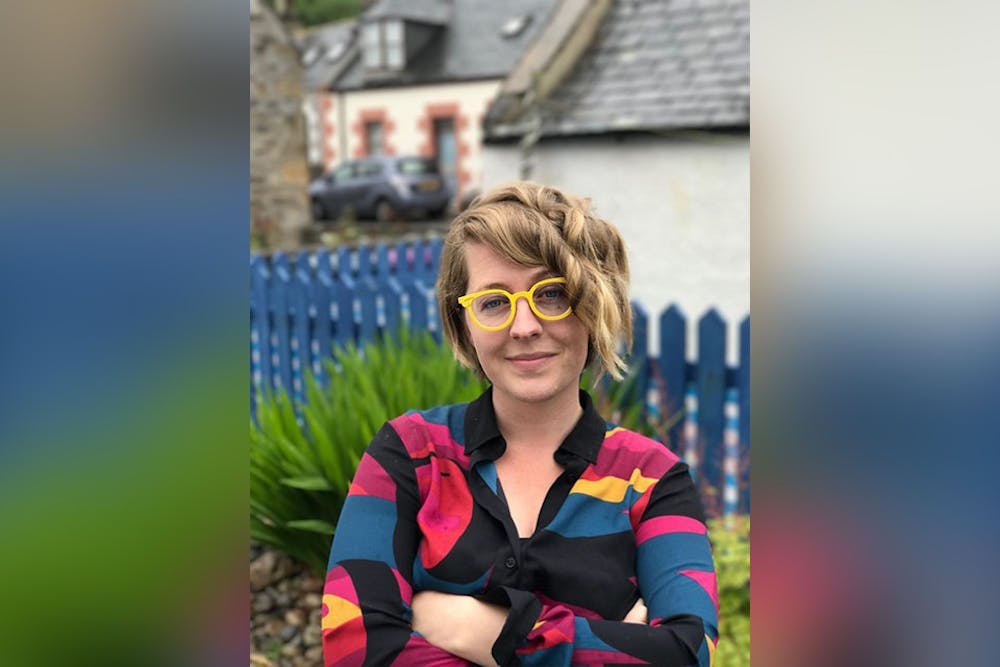Penn is offering a new introductory digital humanities course to give students a different path to pursue a minor in the subject.
Digital humanities is a discipline that uses technological tools to answer large-scale humanities questions. Since Penn launched a digital humanities minor two years ago, the number of students enrolling in core digital humanities courses has doubled, Price Lab for Digital Humanities Faculty Director Jim English said. To expand the program, a new introductory course will be offered in the spring, focusing on giving an overview of digital humanities as a discipline.
The new class, "Introduction to Digital Humanities," will be taught by English professor Whitney Trettien. She said the course will serve as a softer entry point for humanities students to learn how to apply tools and technology to “big picture” questions.
Students will engage in hands-on learning, will complete projects, and will visit Philadelphia institutions to see the ways humanists and scientists work together. The course is cross-listed as ENGL009, HIST009, and COML009, which Trettien said speaks to the versatility of skills it teaches.
English said digital humanities uses many techniques to address critical questions, ranging from spatial analysis and mapping to 3D reconstruction and text mining. Algorithmic techniques applied to literature, for instance, can find patterns of change indiscernible to a human reader to study issues like the evolution of descriptive terms around gender.
Previously, English professor Scott Enderle’s course on using Python to solve literary and cultural problems was considered Penn's introductory digital humanities class. Trettien said this class, which has now been renumbered and renamed "Introduction to Programming for Humanities," has traditionally attracted computer science students who are interested in humanities research. The new course hopes to do the opposite, introducing humanities students to computer science and computational analysis without expecting prior programming experience.

College junior Joel Lee is minoring in Digital Humanities.
“I would like the digital humanities minor to become an interdisciplinary hub for students from multiple majors and departments and interests to interact with each other around shared questions and values,” Trettien said.
RELATED:
Degrees in the humanities have plummeted in the past decade as Penn students flock to sciences
New course will explore the ways humans have altered the environment throughout history
College junior Joel Lee, who took Enderle’s course last spring, said it could be challenging as an introductory class because it included both programming skills and general information about the discipline.
“The class that I took tried to combine both computational methods and an overview of digital humanities as a field, and in that sense it was a little bit hard to do both of those things at once,” Lee said. “I think it’ll be really great that we’ll have one class that’s specifically more about digital humanities as a field.”
Lee, who is minoring in digital humanities, said he feels the discipline provides an exciting intersection between computational work and humanities. As the program expands, however, he says he hopes to see more humanities students get involved in the field.
“No one should feel as though programming is some kind of ominous thing that they can’t do because they’re humanities majors,” Lee said.
Trettien and English said while the aim of digital humanities as a discipline is to ask fundamental humanistic and ethical questions on a large scale, students also take away concrete technical skills and critical thinking that will help them communicate future research in a rapidly changing technological landscape.
“Digital humanities at large is a movement that is transforming how we think about what universities can be and what learning can be in universities, and I want to use this class to step back and think about what that means,” Trettien said. “Right now — 2020 — what’s happening? What will be the future of learning? What will be the future of creating? What will be the future of scholarship?”









